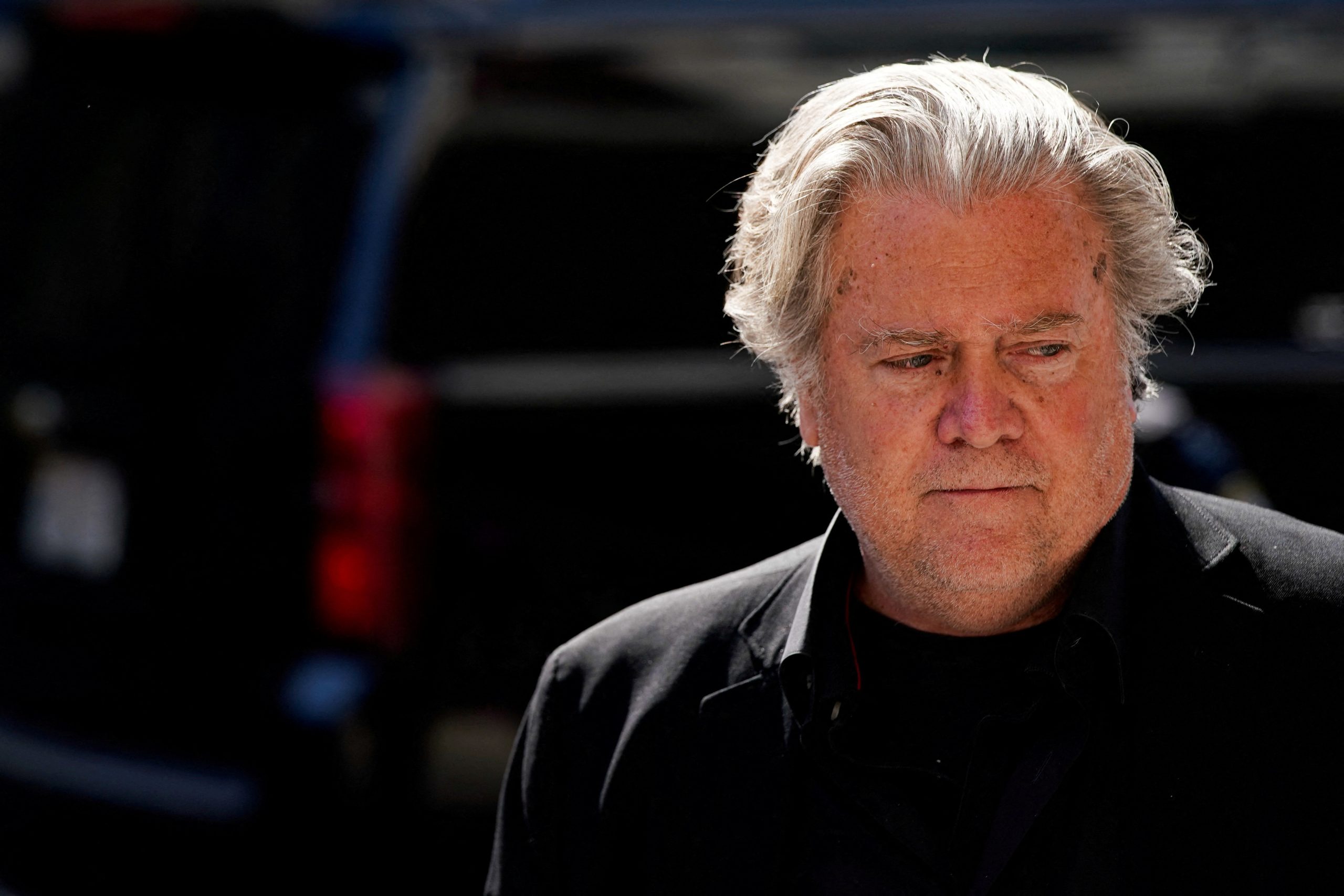
[elfsight_social_share_buttons id=”1″]
Jury selection began on Monday in the criminal trial of Steve Bannon, a prominent former aid to President Donald Trump, for defying a subpoena from a congressional panel investigating last year’s protest at the U.S. Capitol.
Bannon, 68, is facing two misdemeanor counts of contempt of Congress after he declined to provide testimony or documents to the Democratic-led House of Representatives select committee.
As of mid-morning, lawyers for both sides had agreed on three of the 12 jurors and two alternates needed for the trial in federal court. Three jury candidates were rejected.
Bannon had unsuccessfully tried to persuade U.S. District Judge Carl Nichols to delay the trial, arguing that the committee’s high-profile public hearings could make it harder to assemble an impartial jury.
The committee presented evidence last week that Bannon spoke with Trump at least twice on the day before the Jan. 6, 2021, events. The committee also played a clip of Bannon saying on a talk show on Jan. 5 that “all hell is going to break loose tomorrow.” Bannon made those comments after his first call with Trump, the committee said.
The committee plans to hold another hearing on Thursday evening, aimed at reaching a broad television audience, something the committee’s hearings have lacked from the start.
Bannon‘s trial will likely still be going on at that point. Nichols said on Monday it could extend into next week.
Bannon has argued that the material sought by the committee was protected by a legal doctrine called executive privilege that can keep certain presidential communications confidential.
Trump told Bannon this month he was waiving any executive privilege claim.
Bannon reversed course this month and announced that he wanted to testify before a public committee hearing, nearly 10 months after defying the subpoena. There has been no indication of any plan to have him do so, as the committee likely would want him to first testify in closed sessions.
Nichols has ruled that Bannon cannot use executive privilege as a defense and cannot claim he relied on his attorney’s advice when he declined to testify or provide records. Nichols has left open the possibility that Bannon could present evidence of his recent offer to cooperate with the panel as a defense.
Copyright 2022 Thomson/Reuters
